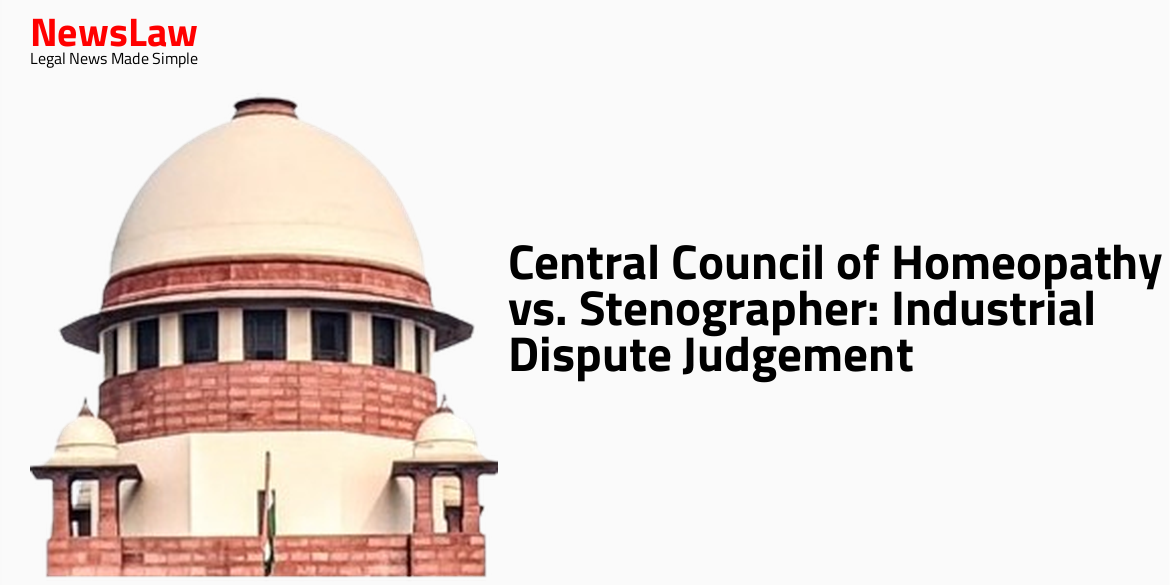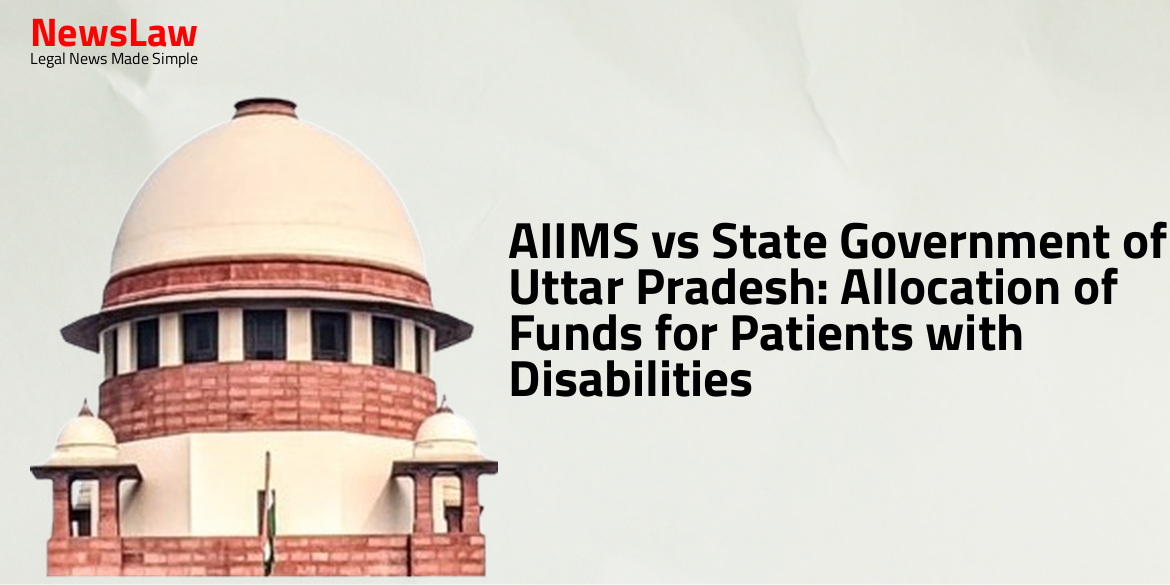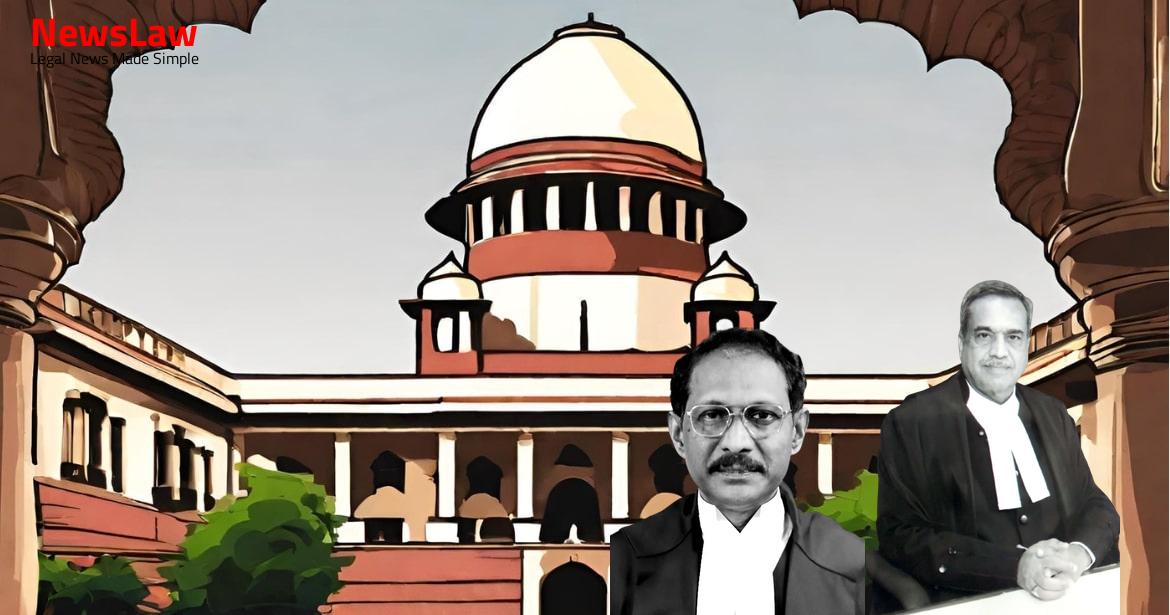Discover the details of the recent industrial dispute case adjudicated by the Delhi High Court involving the Central Council of Homeopathy and a stenographer. The court’s decision, highlighting the violation of industrial dispute laws, sets a precedent for ensuring fair treatment of employees in similar situations. Stay informed about the legal implications and consequences discussed in this important judgment.
Facts
- The respondent was appointed as a temporary stenographer with the petitioner w.e.f. 30 January, 1980
- The dispute was adjudicated in favor of the petitioner on 15 May, 2006, upholding the continuous suspension of the workman
- The respondent filed a petition challenging the decision
Arguments
- During the pendency of the industrial dispute, the petitioner failed to take approval or permission from the Tribunal.
- The petitioner placed the respondent on compulsory retirement without following the necessary procedures under Section 33A of the Act.
- High Courts have limited jurisdiction to interfere with industrial awards.
- The High Courts can only interfere if there is an apparent error or if the award is perverse/illegal.
- The petitioner argued that the respondent’s actions warranted the penalty imposed by the Tribunal as per Section 31 of the Act.
- The petitioner presented evidence of misconduct including complaints, memos, and inappropriate behavior towards female staff and senior officers by the respondent.
- The petitioner’s case was decided in their favor in May 2006.
- The petitioner’s counsel requested that the petition be allowed and the relief sought by the petitioner be granted.
- The respondent is portrayed as a habitual offender.
- It is argued that he was liable for compulsory retirement from his services.
- The respondent asserts that the award in question should not be challenged.
- The Tribunal found that the petitioner violated Section 33 of the Act by changing the respondent’s terms of service during the dispute.
Analysis
- The Central Council of Homeopathy is considered an Industry as per the criteria set by the Supreme Court judgment in Bangalore Water Supply case.
- The management of the Council, despite not being involved in the production or distribution of material goods, is engaged in systematic activities related to Homeopathy.
- The workman who was compulsorily retired during the pendency of an industrial dispute is entitled to reinstatement and back wages.
- Violation of Section 33 of the Industrial Disputes Act was noted, leading to the workman being deemed in service according to the law.
- The provision under Section 31(b) prohibits alteration of service conditions during the pendency of an industrial dispute.
- The Central Council of Homeopathy’s role as an advisory body for the Government of India does not exempt it from being considered an Industry.
- Philanthropic activities can also classify an organization as an Industry, as per the judgment.
- The Court emphasized the employer-employee relationship and systematic activities as key factors in determining an Industry.
- Proper adherence to industrial dispute laws, like Section 33, is crucial to avoid legal consequences.
- Research institutes operating for the government, even with a non-profit motive, are still considered Industries.
- Section 33 of the Act outlines that conditions of service for workmen should not be altered during the pendency of an industrial dispute.
- Protected workmen, who are members of a registered trade union connected with the establishment, have certain rights under the Act.
- Employers need permission to alter conditions of service or take disciplinary action against workmen during industrial dispute proceedings.
- Special provisions under Section 33A allow for adjudication on whether conditions of service were changed during such proceedings.
- Definition of ‘industry’ under Section 2(j) of the Act is wide-ranging and includes various types of businesses and occupations.
- The authority concerned must hear and decide on applications for approval of actions taken by employers within a specified time frame.
- Research involves collaboration between employer and employee, with the employer being the institution and employees being the scientists, para-scientists, and other personnel.
- Scientific research is considered a service as it benefits industry by generating technological inventions and innovations that can be patented and sold.
- Discoveries from research can be highly valuable and profitable, as seen in the example of Thomas Alva Edison and his inventions.
- Research institutes, though run without a profit motive, are considered industries because they operate systematically to produce discoveries and inventions that benefit individual industries and the nation as a whole in terms of goods, services, and wealth.
- The Court agrees with the decision made by the learned Court on the dispute at hand.
- No illegality is found in the decision of the Tribunal as it considered all available circumstances.
- The impugned award dated 15 May, 2006, in Misc. Appl. No 1/2003 in ID no. 13/1999 is upheld with no illegality or infirmity.
Decision
- The instant petition is dismissed for lacking merit
- Any pending applications related to the petition are also dismissed
Case Title: CENTRAL COUNCIL OF HOMOEOPATHY Vs. VIJAY SINGH (2024:DHC:4061)
Case Number: W.P.(C)-12469/2006



